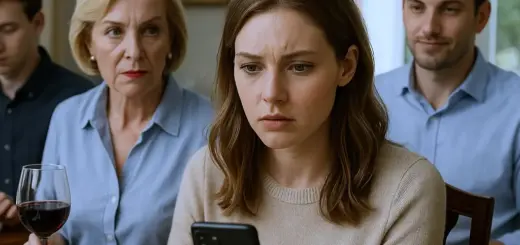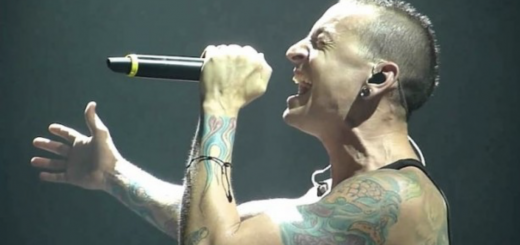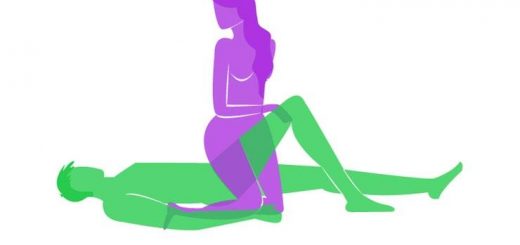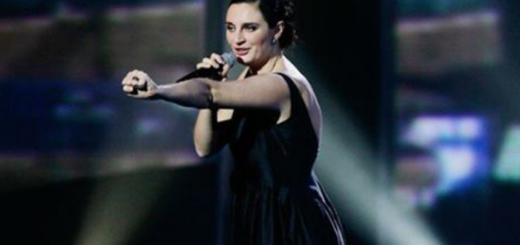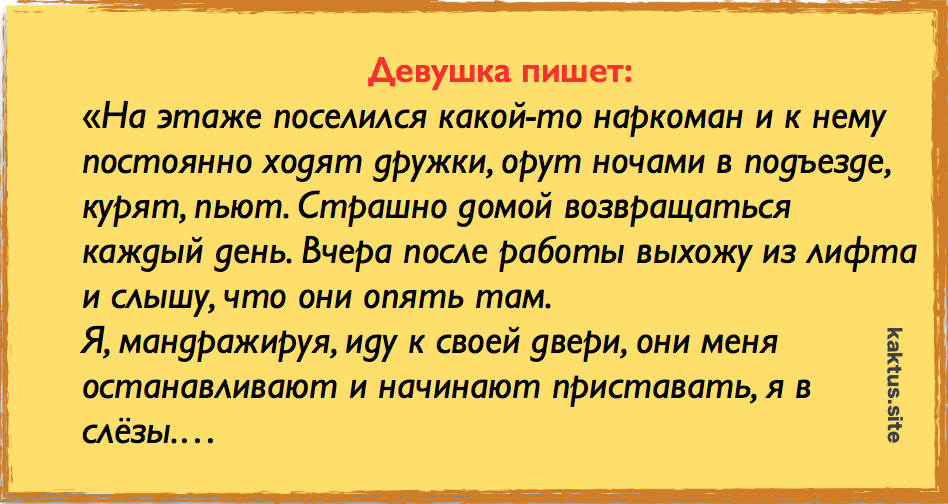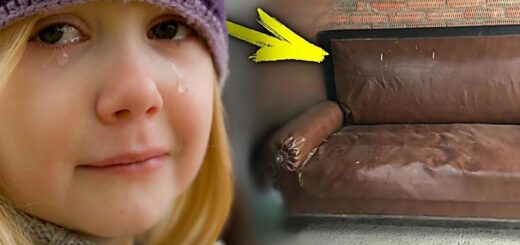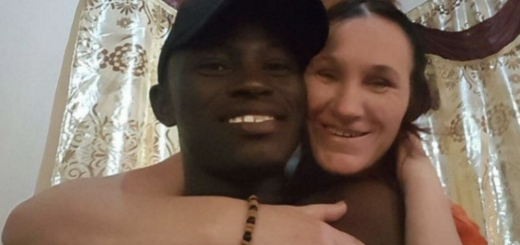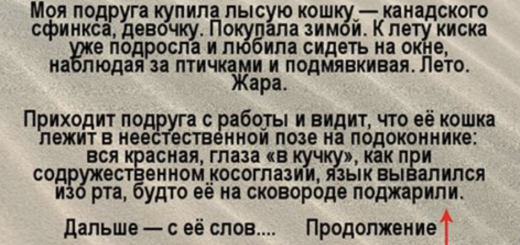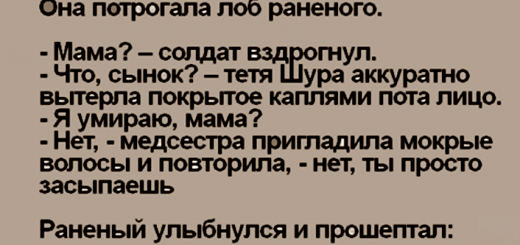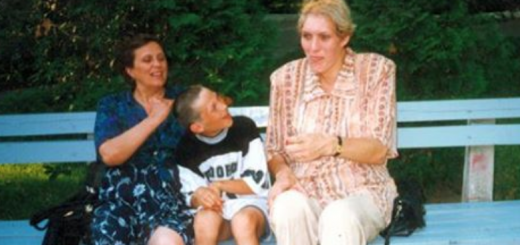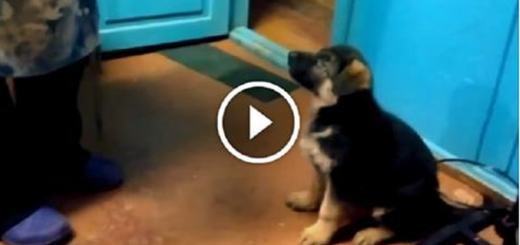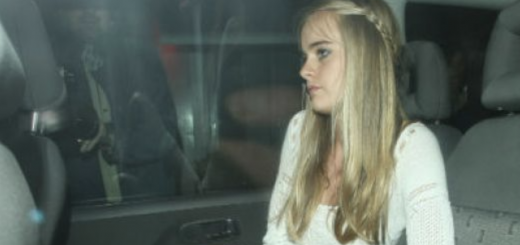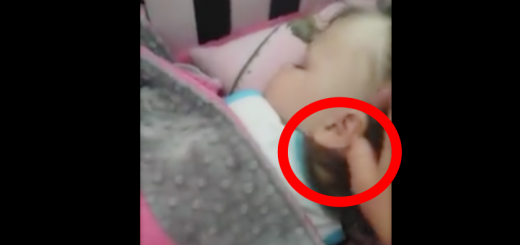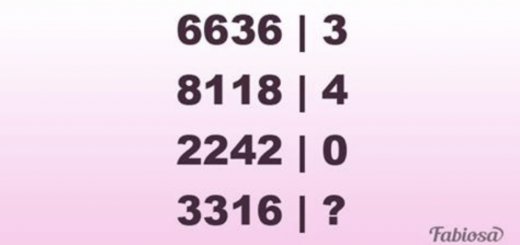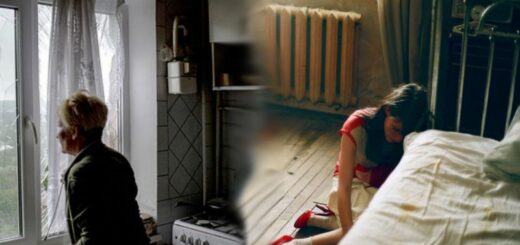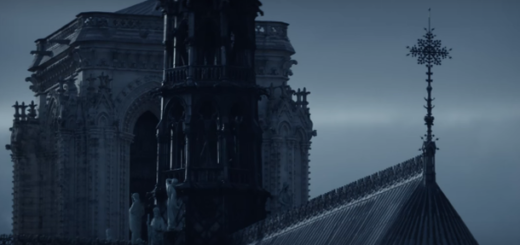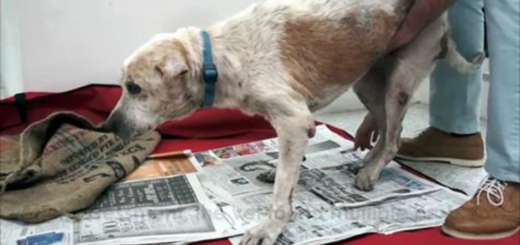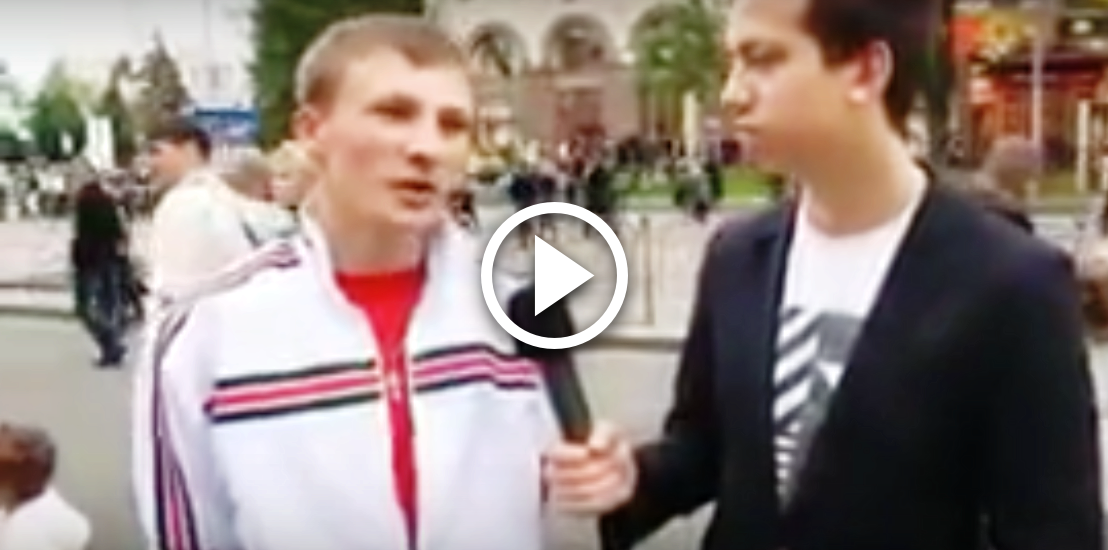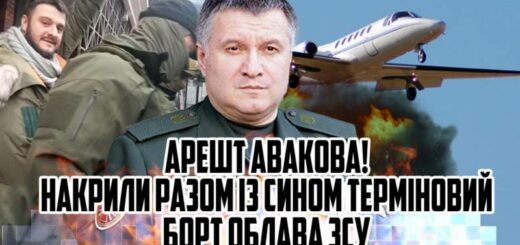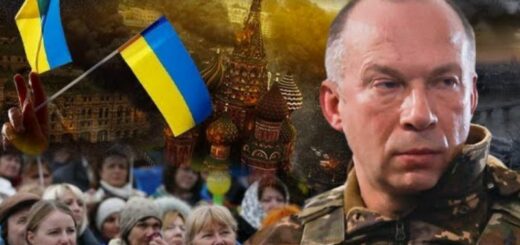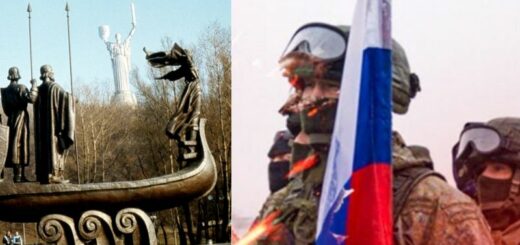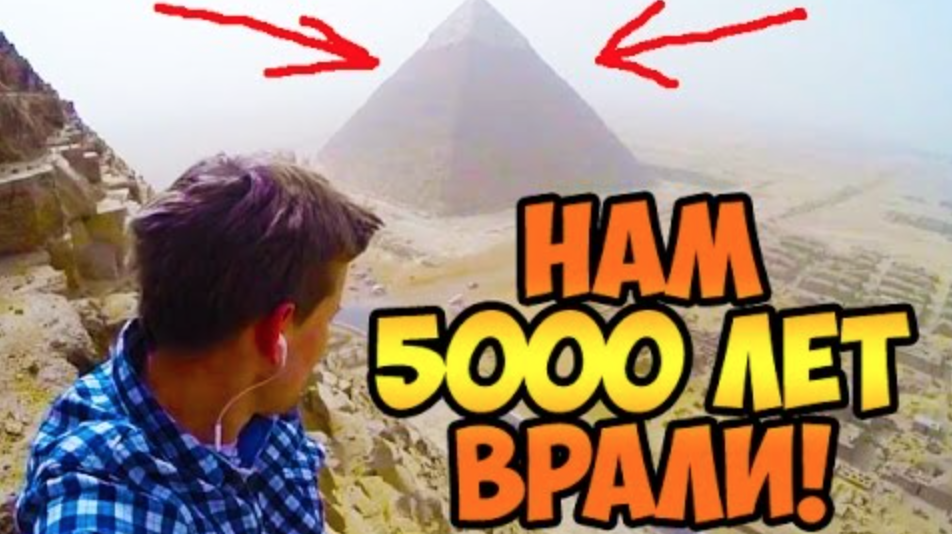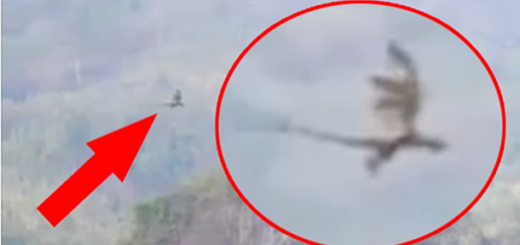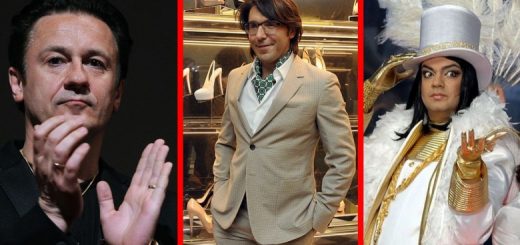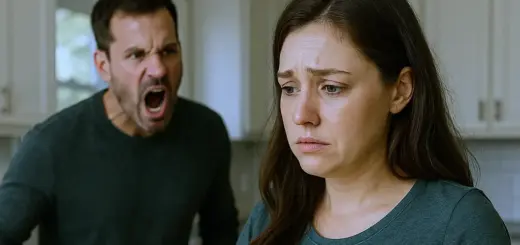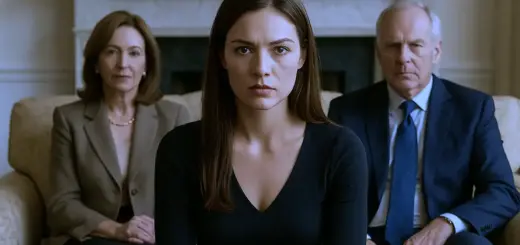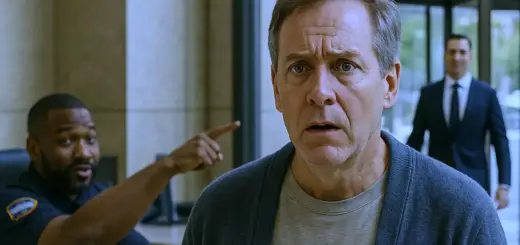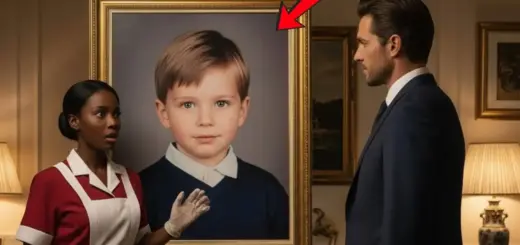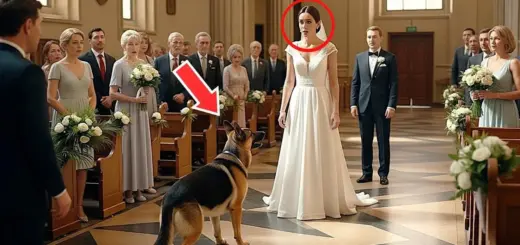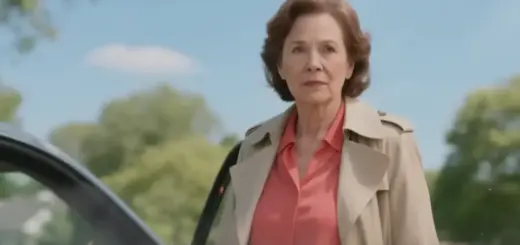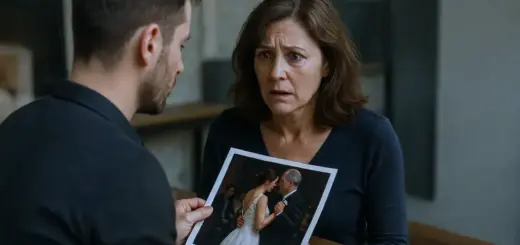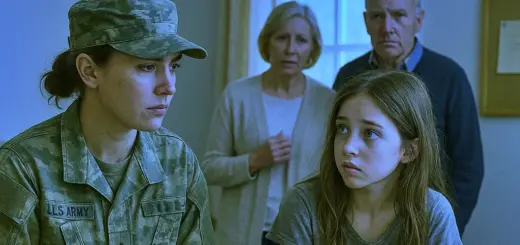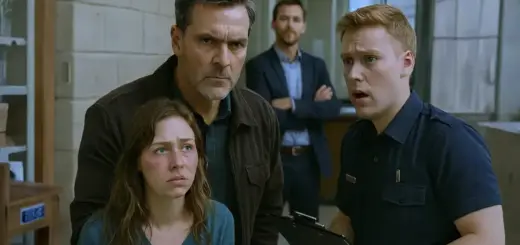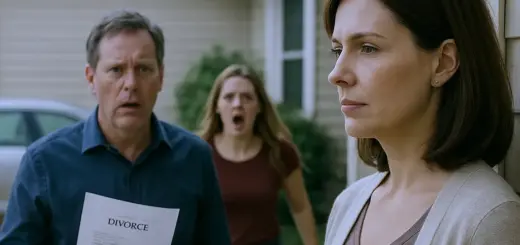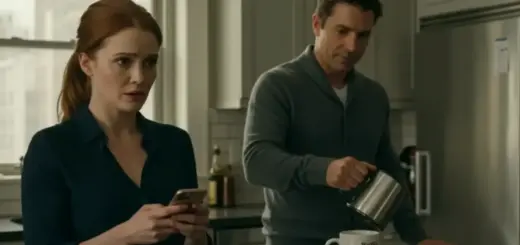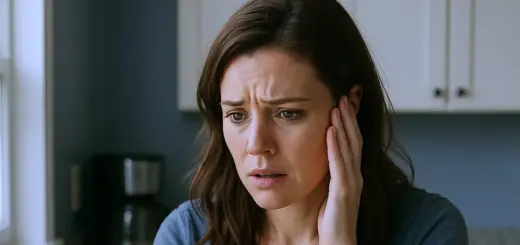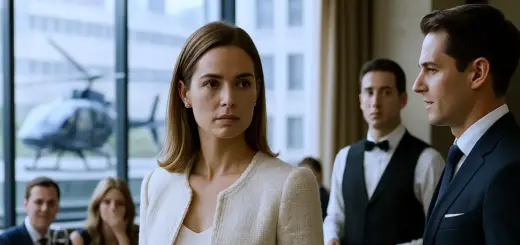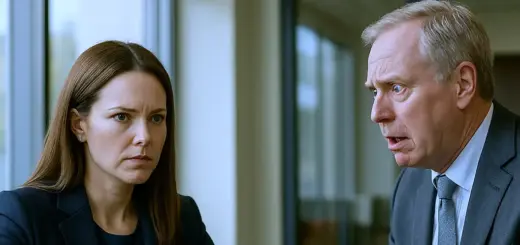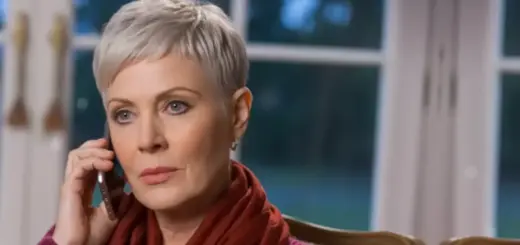«If Daniel was there, I need to see it.» They drove for hours through the countryside until the road narrowed into a winding path lined with jacaranda trees. The orphanage stood at the end, tired and gray, its walls cracked with time, but still holding the faint laughter of children long gone.
An elderly nun answered the door, her name stitched on a faded tag: Sister Magdalena. When Ethan showed her the portrait, her face drained of color. «My God,» she whispered.
«That’s Daniel. I remember him, quiet boy, always drawing, always waiting by the gate at sunset.» Her hands trembled as she reached for the picture.
«He used to tell us someone would come for him. We thought it was just a fantasy.» Ethan’s voice was barely steady.
«Do you know how he came here?» The nun hesitated. «He was brought by a woman claiming to be a state social worker.»
«She had documents, birth certificate, death records for his parents. Everything looked official.» She paused, shame flickering across her features.
«But the papers, they were false. We learned too late.» A cold shiver coursed through Ethan.
All the unanswered questions, the dead ends, the silence suddenly aligned into a cruel truth. Leo hadn’t vanished into nothing. He had been hidden behind forged papers, lost to a system that never looked twice.
Amara stood beside him, her eyes glistening. «He was here, Ethan, so close all these years.» He clenched his jaw, his voice breaking.
«They took him from us, and the world just moved on.» Sister Magdalena placed a fragile hand on his. «Sometimes,» she said softly, «grace gives us one last chance to find what was stolen.»
Ethan looked out the orphanage window where the morning light broke through the clouds. For the first time, he felt that chance stirring inside him, a promise reborn. The search was no longer for closure; it was for redemption.
Sister Magdalena led them through a narrow hallway that smelled faintly of dust and old prayers. The floor creaked beneath their steps as sunlight slipped through cracked windows, illuminating faded murals painted by children long gone. When they reached her small office, she opened a drawer and carefully retrieved a worn leather folder.
«He left something behind,» she said, her voice trembling with reverence. Inside the folder lay a single sheet of yellowed paper, creased, fragile, and trembling in her hands, as if it carried its own heartbeat. Ethan reached for it with unsteady fingers.
When he unfolded it, time seemed to stop. The drawing was simple, almost childlike, yet breathtakingly familiar. A grand house with ivy climbing its walls, a piano by a sunlit window, and two boys holding hands in the garden.
Beneath it, written in uneven, innocent letters, were the words, «My name is Leo Morera. One day my brother will find me.» The room went silent.
Ethan stared at the page as though it could breathe. His throat tightened, his vision blurred. The air around him thickened with memories: his mother’s laughter as she taught Leo to play piano.
His father lifting them both into the air, promising the world could never break them. Yet it had. Amara pressed a trembling hand to her mouth, tears streaking her dark cheeks.
«He drew your home,» she whispered. «He never forgot you.» Ethan’s knees nearly gave way.
He sank into a chair, holding the paper against his chest, as if afraid it might vanish. «He was alive,» he murmured. «He remembered.»
«He kept waiting.» For a moment, the three of them sat in silence. The billionaire, the maid, and the nun bound together by a child’s faith that had outlived the cruelty of the world.
Sister Magdalena wiped her eyes. «He said he’d give this to the person who came asking for him. He believed his brother would find the way.»
Ethan looked up, his face pale but resolute. «Then that’s exactly what I’ll do,» he said, his voice breaking yet filled with fire. «I’ll find him, no matter how long it takes.»
He folded the drawing carefully, as if it were sacred scripture, and slipped it into his coat pocket. The paper was light, yet it felt like carrying the weight of a promise finally awakened. As he stepped out into the sunlight, Ethan could almost hear a faint piano melody drifting through the wind, unfinished, waiting for its final note.
That night, back in his mansion, Ethan placed the fragile drawing beside the old portrait of Leo. The two images, one born of art, the other of memory, seemed to face each other across the decades, whispering the truth that the world had tried to bury. For hours, he sat before them in silence, his mind echoing with the same thought: he was here.
He was alive, and I failed to find him. But grief, when met with love, can turn into purpose. The next morning, Ethan began to act.
He contacted private investigators, combed through public records, and reopened every file the police had long since closed. He called Amara into his study, spreading documents across the table: maps, adoption papers, death certificates, all riddled with discrepancies. «Every clue leads nowhere,» he muttered, exhaustion softening his voice.
Amara, standing beside him, studied one of the orphanage’s records. «Not nowhere,» she said gently, «just not far enough yet.» Her quiet certainty gave him strength.
Together, they followed a trail of dates and names that stitched a faint map across the country. At last, a lead emerged: a hospital record from years ago bearing the name Daniel Lucas Morera, age 17, admitted after being found injured on a deserted road. Ethan’s pulse quickened.
They drove for hours, until the city lights faded into the quiet hills of Belo Horizonte. At the hospital, a weary old doctor met them in the archives room. When Ethan showed the photograph of Leo, the doctor’s eyes widened.
«I remember that boy,» he said softly, «quiet, talented, always drawing. He had no memory of who he was. After he recovered, he said he needed to visit an old orphanage in Sao Vicente.»
«And then he disappeared.» Ethan felt the world tilt beneath him. «He went back.»
He whispered the words, almost a prayer. «He went back to find us.» They returned to Sao Vicente before sunrise.
The orphanage stood empty now, abandoned to ivy and silence. Inside, the air was heavy with the ghosts of laughter and loss. As they stepped into the crumbling dormitory, Amara froze, her gaze fixed on one wall covered in faint scribbles.
«Ethan,» she breathed. He turned, and there it was. Amid the faded marks, one sentence stood clear, etched in a child’s shaky hand.
«I came back, but no one was waiting.» The words hit Ethan like a blade made of sorrow. He pressed his palm against the wall, trembling.
«He was here,» he whispered. «He came home and we weren’t.» Amara’s tears fell quietly.
«But you are now,» she said. And as the first light of dawn poured through the broken windows, Ethan swore to the silence that this time, this time, he would not let his brother fade into history again. For days after finding the message on the wall, Ethan couldn’t sleep.
The words «I came back, but no one was waiting» echoed in his head like a wound that refused to close. They followed him into every room of the mansion, into every heartbeat. Each time he looked at the empty chair beside the piano, he imagined Leo sitting there, small hands resting on the keys, waiting for a brother who never came.
But grief was no longer enough. Ethan turned it into motion. He hired a team of international investigators, scanning through decades of lost files and unmarked graves, tracing every Daniel, every orphan boy who had vanished from the system.
For months, the search led only to dead ends, until one evening a call broke through the silence. «Mr. Morera,» the lead investigator said, «we’ve found a record. A man named Lucas Daniel Morera admitted to a shelter in Minas 15 years ago.»
«He was a street artist, used to paint portraits of children. Locals called him the Quiet Painter.» Ethan’s breath caught.
The world seemed to slow around him. «Where?» «In a small mountain town, Serra Azul. He still lives there, they say.»
Within hours, Ethan and Amara were on the road, their car cutting through the misty countryside like a pulse of destiny. As they arrived, the town was alive with color: a small market filled with laughter, the smell of roasted coffee, the hum of life. Then Amara stopped walking.
«Ethan,» she whispered, her voice trembling. «Look.» Beneath a striped canopy, a man sat at an easel, painting a little girl’s portrait.
His clothes were simple, his beard short, his eyes focused and calm. But there was something unmistakable in his face: the curve of his jaw, the softness in his gaze. Ethan’s body froze; it’s him.
Amara approached first, her voice barely a breath. «Daniel.» The man looked up, confusion flickering across his eyes, before recognition began to surface like sunlight breaking through clouds.
«Amara,» he whispered. Then his gaze shifted to Ethan, and the world seemed to stop. Ethan stepped forward, his voice cracking under the weight of 30 years.
«Leo.» The man’s hands trembled as Ethan pulled a folded drawing from his coat pocket. The same one from the orphanage, now faded by time.
«Do you remember this?» When Leo’s eyes fell on it, something inside him broke open. Tears spilled down his face.
«I used to dream of this house, that piano.» He pressed a shaking hand to his chest. «And of you.»
Ethan’s voice trembled as he reached for him. «You’re home now, little champion.» And there, in the middle of the bustling square, two grown men fell into each other’s arms.
Brothers torn apart by fate, reunited by faith, and healed by a love that had refused to die. The crowd paused, watching in silence, as if witnessing a miracle that time itself had waited to deliver. The following morning, sunlight poured softly through the tall windows of the Morera mansion.
Bathing the once silent halls in a golden warmth they hadn’t felt in decades. For years, those walls had echoed with absence. But now they held laughter, fragile at first, like something newly reborn.
Leo moved slowly through the corridors, his fingers grazing the polished wood, pausing to study framed photographs of a childhood he could barely remember. Each face, each familiar corner, seemed to unlock a memory long buried beneath the rubble of pain. Amara followed quietly, watching as he stopped before the piano, his mother’s piano, untouched for 30 years.
The dust shimmered in the sunlight as Leo lifted the cover and pressed a single key. The note trembled through the air, raw and beautiful, like a voice finding its way back after a lifetime of silence. Ethan stood in the doorway, his eyes moist.
«Do you remember this?» he asked softly. Leo smiled faintly. «Not with my mind,» he whispered, «but my heart never forgot.»


